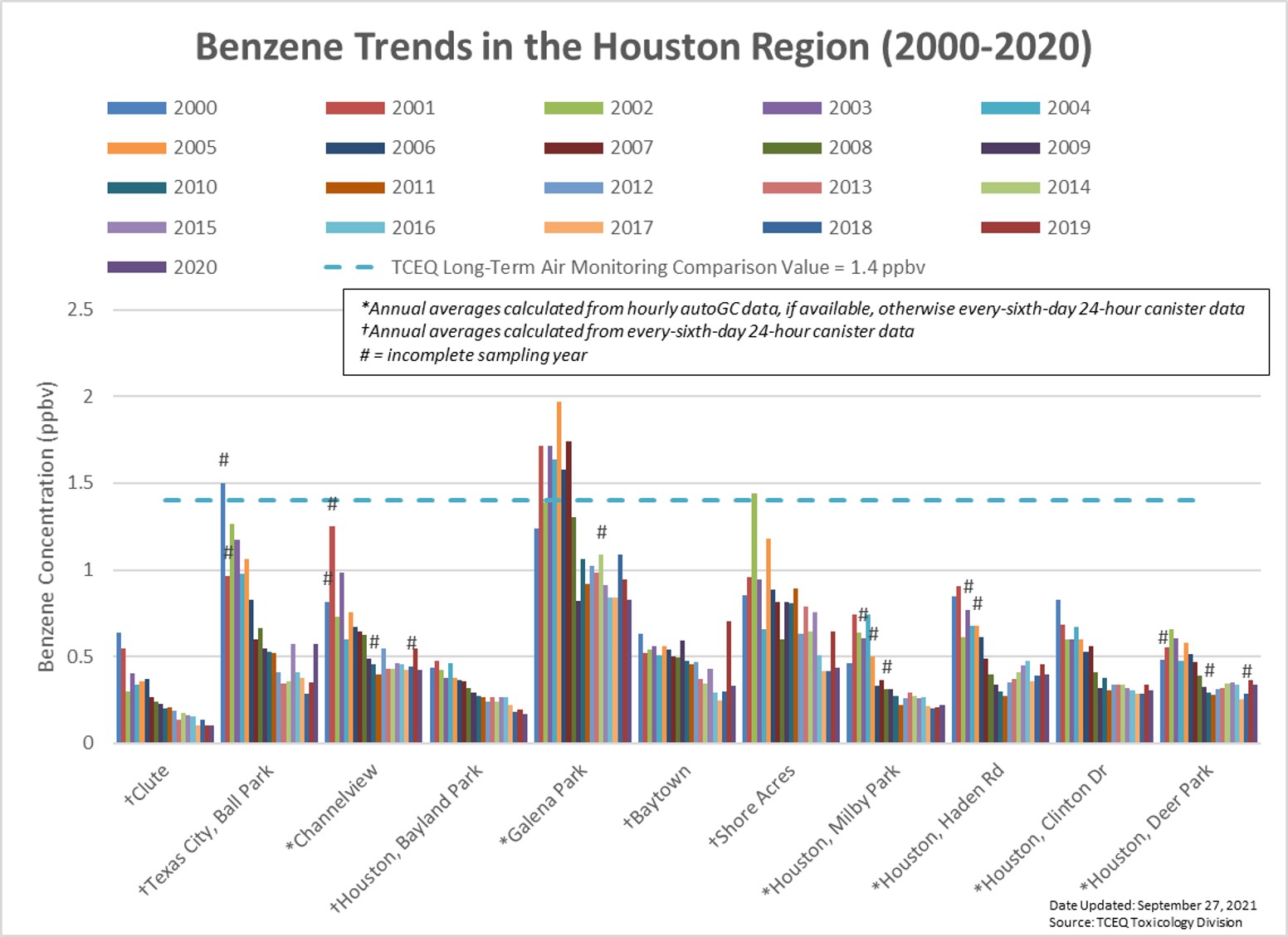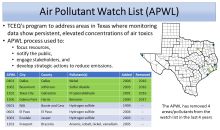Air Quality Successes - Air Toxics
Texas’ air quality has made huge strides in the past few decades. The state has devoted significant resources for air monitoring and research to advance the science and find innovative ways to improve air quality.
Air Toxics - Monitors and Trends

Monitoring Sites
- As of May 2014, there are more stationary monitors that measure volatile organic compounds (like benzene) in the state of Texas than in any other state.
- Evaluation of these data show that, overall, air in Texas is safe to breathe.
The Geographical Texas Air Quality Monitoring viewer allow users to access information about air quality monitors, view and print maps of areas of interest, and obtain details about selected air monitors and their surrounding area.

Benzene in Texas
- Benzene is released into the air by a variety of sources (e.g., industry, automobiles, lawnmowers, etc.), and is one of the most widely monitored air toxins due to its ability to cause cancer.
- Over 90 percent of the monitors operating from 2000-2020 (29 total across the state) showed a decrease in benzene annual average concentrations.
- In 2020, all monitors in Texas had annual average benzene concentrations below the state’s safe level (Air Monitoring Comparison Value or AMCV).
- For more information on benzene, visit: Final Development Support Documents.

Benzene Trends
- From 2000 to 2020, over 90 percent of the benzene monitors (11 total that were active in 2000 and 2020) in the Houston Region showed a decrease in annual average concentrations.
- In 2020, all monitors in the Houston Region had annual average benzene concentrations well below the state’s safe level (Air Monitoring Comparison Value or AMCV).

Air Pollutant Watch List
- Significant decreases in concentrations of chemicals of concern have been observed since being listed on the Air Pollutant Watch List (APWL).

Barnett Shale
- The Barnett Shale is a 5,000 square mile hydrocarbon-producing geological formation west and south of Dallas.
- As of December 2020, all hourly and annual average concentrations of volatile organic compounds (VOCs) reported by the Dallas-Fort Worth area automated gas chromatograph (autoGC) monitoring sites were below their short-term and long-term air monitoring comparison values (AMCVs) and would not be expected to cause acute or chronic adverse health effects, vegetation effects, or odor concerns.
